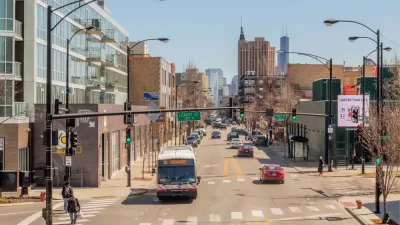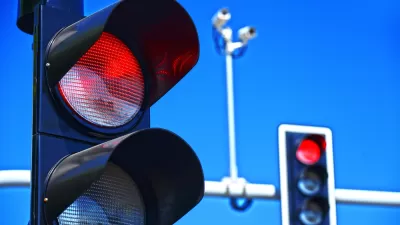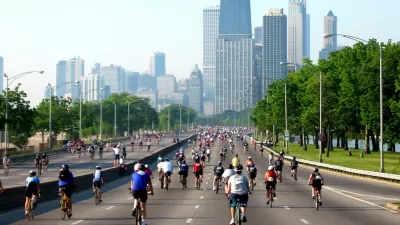A special investigation by the Chicago Tribune finds inconsistencies and errors with the city's "'Children's Safety Zone" initiative, which places speed camera near schools and parks.
David Kidwell and Abraham Epton report on the results of a Chicago Tribune investigation into the city of Chicago's speed camera program.
"Mayor Rahm Emanuel's speed camera program improperly issued more than $2.4 million in fines to Chicago drivers, ticketing them when cameras were supposed to be off and when the required warning signs were confusing, obscured or missing," according to the article's explanation of the findings of the investigation.
The premise of the investigation follows concern about the "complicated set of rules that govern when, where and how drivers can be tagged by the automated cameras now in place at 63 schools and parks throughout the city."
The article insists that the Emanuel Administration has been selling the cameras "as a way to protect youngsters walking near parks and schools," but "the most prolific cameras in the 2-year-old 'Children's Safety Zone' initiative can be found along major roadways, where crash data show child pedestrians are least likely to be struck by speeders."
The reporters note that city officials have acknowledged mistakes with the system. Specifically, "[a]fter Tribune inquiries, the Emanuel administration says it is moving to issue refunds for nearly 23,000 tickets City Hall now admits should never have been mailed in the first place."
The article includes a lot more detail about the program, including how it relates to the city's also-controversial red-light program.
FULL STORY: Emanuel's speed cameras issue $2.4 million in bad tickets

Alabama: Trump Terminates Settlements for Black Communities Harmed By Raw Sewage
Trump deemed the landmark civil rights agreement “illegal DEI and environmental justice policy.”

Planetizen Federal Action Tracker
A weekly monitor of how Trump’s orders and actions are impacting planners and planning in America.

The 120 Year Old Tiny Home Villages That Sheltered San Francisco’s Earthquake Refugees
More than a century ago, San Francisco mobilized to house thousands of residents displaced by the 1906 earthquake. Could their strategy offer a model for the present?

Ken Jennings Launches Transit Web Series
The Jeopardy champ wants you to ride public transit.

BLM To Rescind Public Lands Rule
The change will downgrade conservation, once again putting federal land at risk for mining and other extractive uses.

Indy Neighborhood Group Builds Temporary Multi-Use Path
Community members, aided in part by funding from the city, repurposed a vehicle lane to create a protected bike and pedestrian path for the summer season.
Urban Design for Planners 1: Software Tools
This six-course series explores essential urban design concepts using open source software and equips planners with the tools they need to participate fully in the urban design process.
Planning for Universal Design
Learn the tools for implementing Universal Design in planning regulations.
Clanton & Associates, Inc.
Jessamine County Fiscal Court
Institute for Housing and Urban Development Studies (IHS)
City of Grandview
Harvard GSD Executive Education
Toledo-Lucas County Plan Commissions
Salt Lake City
NYU Wagner Graduate School of Public Service





























